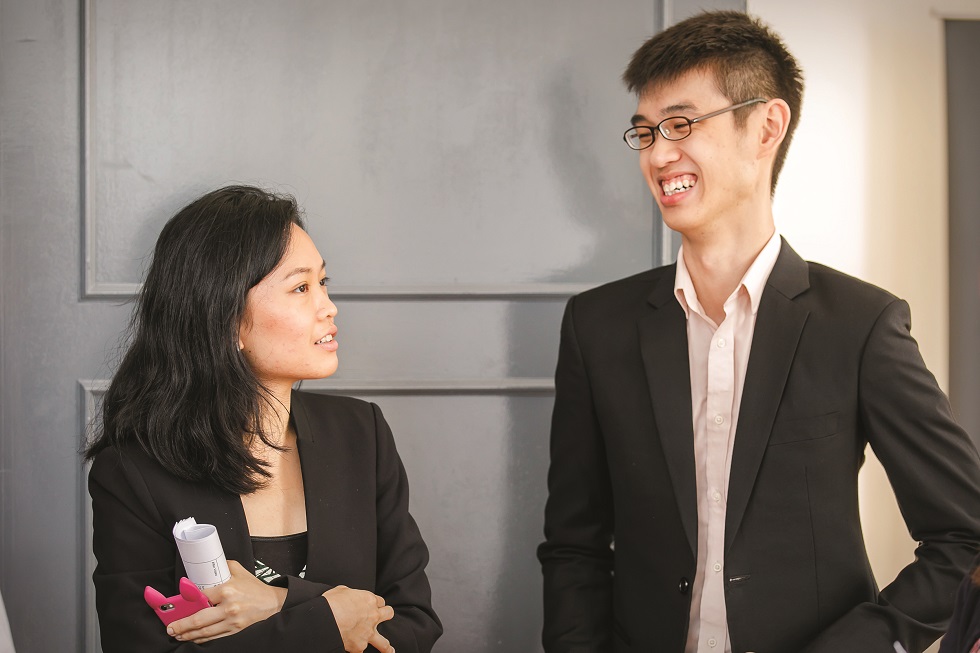By Zhou Huixin
As an ancient Chinese saying goes, “Gentlemen of ancient times were strict and critical of themselves,but tolerant and forgiving toward others.” The practice of tolerance and forgiveness requires one to be benevolent, wise, and mature at the same time.
Chinese history is peppered with great examples of ancient figures who demonstrated incredible tolerance and forgiveness, despite suffering devastating losses at the hands of others. And as many of these stories demonstrate, their forbearing nature earned them enormous respect and, in some cases, greater benefit than what they had initially lost.
Guo Ziyi (郭子仪) Responds to Spite With Kindness
Guo Ziyi was a famous general of the Tang Dynasty, who served under Emperor Taizong. While his track record of countless victorious battles earned him much renown, it also incurred jealousy amongst his enemies.
Once, while Guo was away defending his country, a spiteful person seized the opportunity to loot his family’s ancestral graves. Guo knew this wicked deed was orchestrated by a jealous official named Yu Chaoen, who had tried to frame Guo on many occasions.
When Guo returned to the capital after the battle, everyone thought that Guo would openly confront Yu in court. But while dictating his report to the Emperor, Guo made no mention of the looting at all.
It was only after the Emperor asked that Guo burst into tears in front of all the court officials. He said, “All this time, while leading my soldiers to battle, I could not stop them from looting others’ ancestral graves. It must be Heaven’s punishment that my family’s ancestral grave has been looted by others. This is my retribution and I have no one to blame but myself.”
Not long after, Yu invited Guo to his home for a feast. Suspicious that Yu had ill intentions, many of Guo’s peers advised him not to go. But Guo ignored them, and instead of bringing his guards he brought along a few of his servants to attend the feast.
When Yu saw that Guo came without any hostility or ill will, Yu was very touched and full of remorse. He said to Guo, “Despite how I have treated you, you continue to treat me with complete respect and trust. You are indeed an enlightened senior!”
From then on, Yu’s attitude toward Guo changed, and he would often go out of his way to assist Guo in court affairs.
Lesson Learnt: A true gentleman does not bear grudges, nor does he perpetuate conflicts. By responding to spiteful acts with unexpected kindness, Guo dissolved a conflict that could have led to significant bloodshed between the two families, and melted Yu’s jealousy into respect and cooperation.
As aptly said by Bob Kerrey, “Unexpected kindness is the most powerful, least costly, and most underrated agent of change. Kindness that catches us by surprise brings out the best in our natures.”
Yang Shiqi (杨士奇) Defends His Colleague’s Weakness
When Emperor Xuanzong of Ming (宣宗) ascended the throne, he had only three ministers in his cabinet: Yang Shiqi (杨士奇), Yang Rong (杨荣) and Yang Bo (杨溥).
Yang Rong was an optimistic and courageous person, who had served the imperial court in Mongolian conquests many times. As such, he was a valuable aide with much experience in the border situation. He knew which generals at the border were capable, and he knew which parts of the border were critical to guard. He knew the geography of the area, and the enemies near the borders.

Unexpected kindness is the most powerful, least costly, and most underrated agent of change. Kindness that catches us by surprise brings out the best in our natures.
Bob Kerrey
However, Yang Rong had one negative trait, and that was his weakness for gifts. When Emperor Xuanzong learned about this, he consulted Yang Shiqi on the matter.
Yang Shiqi replied, “Yang Rong is well versed in the situation at the Mongolian border, and no one can match his experience. Therefore, Your Majesty should not be bothered by these minor concerns, which pale in comparison to defending the borders.”

but tolerant and forgiving toward others.” (epoch times)
Emperor Xuanzong laughed and said, “Yang Rong has spoken ill of you in the past. Why are you still speaking up for him?”
Yang Shiqi replied, “I hope Your Majesty can be as forgiving towards Yang Rong as I have been toward him.”
Yang Shiqi’s reply clarified the Emperor’s doubts. When Yang Rong later learned about how Yang Shiqi had spoken up for him, Yang Rong deeply regretted his past actions. The relationship between the two men improved greatly, and Yang Shiqi became the Emperor’s trusted aide.
Lesson Learnt: Yang Shiqi understood that his own personal matters and indignities were inconsequential compared to the good of his country. While he had been publicly embarrassed by Yang Rong before, he saw Yang Rong as a peer with an integral role in the country’s defence.
A person’s selfless and tolerant nature does not go unnoticed by his peers and superiors. Instead, it earns their respect and trust. Often, being tolerant and accommodating of others’ flaws is just as essential
as talent in achieving greater heights.‘
The Capacity to Contain a Ship’
During the Three Kingdoms Period, the state of Shu Han (蜀汉) was dealt a terrible blow when their prime minister, the legendary Zhuge Liang (诸葛亮), passed away. With the threat of invasion from enemy states looming overhead, the Shu Han government was in chaos.
But shortly before he died, Zhuge Liang left instructions to make Jiang Wan (蒋琬) his successor. Although it was Jiang’s first time ruling the country, Jiang was a calm
and far-sighted prime minister. He quickly gained the people’s trust and brought stability to the country.
Jiang was a benevolent man by nature. One of his advisors, Yuan Yangxi (掾杨戏), was aloof and spoke little, and he often did not reply Jiang whenever the prime minister conversed with him.
Some of the officials could not tolerate Yuan’s attitude toward Jiang Wan. “His
behaviour is unacceptable!” they complained to Jiang.
However, Jiang smiled and replied, “Every person has his individual character, just like how no two persons look alike. Furthermore, no one likes a person who appears obedient on the surface, but criticises
others behind one’s back. Praising me directly is not Yuan’s nature, nor does he want to criticise me in front of others, as he doesn’t want to publicly embarrass me. In fact, Yuan’s lack of words is one of
his best qualities.”
Gentlemen of ancient times were strict and critical of themselves, but tolerant and forgiving toward others.
Confucian scholar Han Yu (韩愈)
Once, the Minister of Agriculture Yang Min (杨敏) criticised Jiang as being a shoddy planner, adding that he was a far cry from the former Prime Minister Zhuge Liang. The Minister of Justice requested to
punish Yang Min by trial, but Jiang chose not to pursue the matter, saying, “I am definitely not as capable as Zhuge Liang— that is the truth.”
Subsequently, Yang Min committed an offence, and everyone thought that Jiang Wan would seize the opportunity to take revenge on Yang Min. But to their surprise, Jiang instead pleaded for clemency
for Yang Min.
Many were angry about the unfairness Jiang had suffered, but Jiang replied, “It is well-known that I am not as capable as the former prime minister. There is no need to conceal the truth. As for the offence
that Yang Min committed, I hope that it can be dealt with fairly according to the law.”
Lesson Learnt: Despite his status as prime minister, Jiang Wan remained grounded, humble and forgiving. His magnanimous and broad-hearted character gave rise to the Chinese idiom, “the prime minister with the capacity to contain a ship (宰相肚里能撑船)”, in recognition of his immense ability to embrace
and forgive all kinds of insults.
King Zhuang of Chu’s (楚庄王) Benevolence Earns Him a Loyal General
King Zhuang ruled the State of Chu during the Spring and Autumn Period. He was known as an effective ruler who earned his officials’ loyalty through kindness and fairness.
Legend goes that one day, King Zhuang held a grand banquet for his officials. Everyone drank liberally and celebrated well into the night.
Just then, a strong wind blew out the candles in the banquet hall, plunging it into darkness. The king’s favourite concubine felt someone pull at her clothes, and in the dark she pulled off the sash of the
perpetrator’s hat.
Quickly, the concubine went to the king and told him what had happened. She wanted the king to have the candles lighted immediately, to identify the official without a hat sash.
King Zhuang sighed, “I was the one who plied my officials with wine, which made them drunk and behave in an indecent manner. I’m the one in the wrong. Now, your modesty has been violated. How can
I make the official lose face when it is entirely my fault?”
The king then announced, “Any official who fails to remove his hat sash is sending me a message that he is not having a good time.” With that, the 100 officials present all removed their hat sashes. The candles were then lighted, and the celebration continued.
Three years later, the Chu State engaged in a fierce war with the Jin State, and King Zhuang personally led his troops to battle. He noticed that during each battle, one particular general was always at the
frontline, fearlessly plunging into the enemy fray and scattering the enemy troops with his ferocity.
When the war ended and King Zhuang emerged victorious, he called the general to him and said, “I’ve done nothing for you, yet you have fearlessly laid down your life for me at every battle! Why is that?”
The general replied, “Your Majesty, I was the official who lost his hat sash at the banquet two years ago. I committed a crime punishable by death, but you spared my life and my dignity. From then on, I have sworn to give my life to you in return for your kindness.”
Lesson Learnt: King Zhuang had the wisdom and foresight to treat his subordinates with kindness and fairness. In return, they helped him establish a successful hegemony. People recognise good supervisors who treat them properly and kindly—and they are more likely to reciprocate with loyalty and diligence.
Duke Huan of Qi (齐桓公) Forgives Past Grudges
After Duke Xiang of the Qi State was assassinated during the Spring and Autumn Period, his brothers Prince Jiu and Prince Xiaobai (小白) fought for the throne. Prince Xiaobai was aided by Bao Shuya (鲍叔牙), while Prince Jiu (纠) was aided by Guan Zhong(管仲).
During the war, Prince Xiaobai was nearly killed by one of Guan Zhong’s arrows. However, Prince Xiaobai eventually won and became the next ruler of Qi— Duke Huan.
After Duke Huan ascended to the throne, he wanted to appoint Bao Shuya as prime minister. However, Bao Shuya declined the offer and recommended Guan Zhong for the position instead.
Said Bao Shuya, “Guan Zhong is better than me in five ways: he is better at maintaining the peace and earning the people’s loyalty; he is better at governing the country and protecting its interests; he is better
at uniting the country as he values trust and loyalty; he is better at establishing rites and obedience of the law; and he is better at military warfare and rallying the people.”
Duke Huan was a tolerant person and bore no grudges against Guan Zhong, despite his previous attempt on his life. He thus accepted Bao Shuya’s advice and employed Guan Zhong as his right-hand man.
Guan Zhong proved to be a valuable aide to Duke Huan, helping him to overhaul the country’s financial policies, political system, military and so on. Within a few years, the previously weak State of Qi had become a regional power. Duke Huan united the surrounding eight states under a single hegemony, of which he was leader.
Lesson Learnt: Duke Huan’s single act of forgiveness helped him achieve his golden years of governance. The ability to tolerate and forgive opens up doors of opportunity. Perhaps this is why many of history’s great achievers were magnanimous people as well.
















